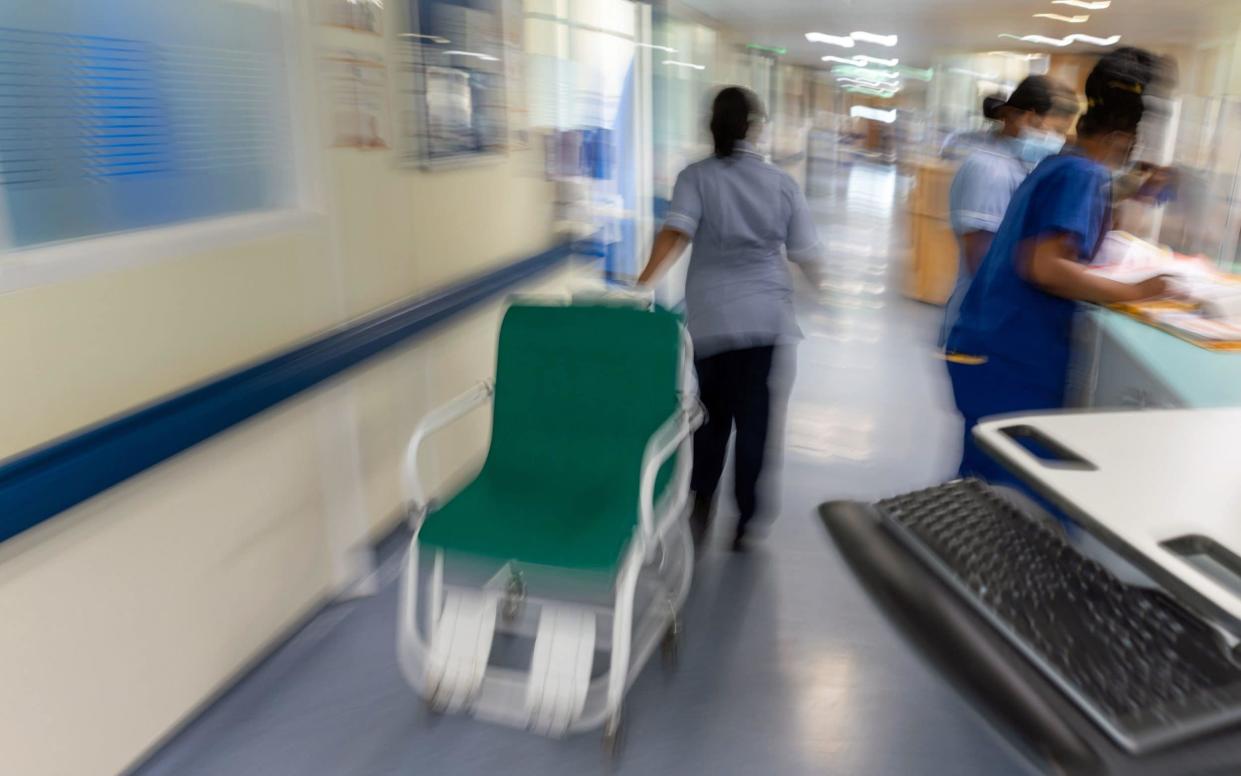Send in Dr Robot: NHS turns to machines to help clear nightmare waiting lists

Robots will be deployed to help clear NHS waiting lists and decide who gets seen first.
Pilot schemes have begun using automated calls to assess patients waiting for operations and prioritise their urgency.
One major company said the NHS is now looking to use automatisation in about 100 areas, including helping to clear backlogs and speed up the handling of referrals.
The expansion could mean more than 100,000 NHS workers are trained in coding and bot creation, in order to reduce the bureaucratic burden.
But there is concern about how the public will respond to the automated calls, in particular the elderly.
Health officials are also aware of the risk of error, after 1,800 patients were accidentally wiped from lists in one scheme at Barking, Havering and Redbridge University Hospital NHS Trust because the robot’s “memory capacity” became full. The trust’s chief executive apologised for the error, promising greater staff oversight.
On Tuesday, the country’s top accident and emergency (A&E) doctor said that NHS 111 is sending too many people to A&E departments, because its computer algorithm is “too risk averse” - heaping extra pressures on services.
Hospitals across Lancashire and South Cumbria have just started using bots to assess patients on waiting lists, with 30,000 people set to be contacted by March.
Early trials found that 15 per cent of those on waiting lists no longer needed the treatment they had been waiting for. Ten per cent of cases were found to require more urgent care, allowing medics to try to fast-track patients.
The pilot scheme in Morecambe Bay and Preston is now being followed by trials in Blackburn, Blackpool and other areas. Services in Worcestershire and Wye Valley have embarked on similar schemes for patients who have already waited six months, with early results showing 10 per cent no longer needed the hospital appointment.
It comes amid mounting problems across the NHS, with the biggest walkouts planned next month when ambulance staff and nurses combine strikes. Official figures show excess deaths in England and Wales are the highest for nearly two years, with senior medics warning that delays for A&E and ambulances have had an “terrible” impact.
Public concern about the NHS is the highest since before the pandemic, polling by Ipsos shows.
The survey found 42 per cent of people citing it as a major issue, above inflation, the economy or immigration - up from 27 per cent last month.

Experts say automation could greatly assist NHS efforts to tackle record backlogs, with current lists littered with errors and duplication.
Walton Centre NHS Foundation Trust, a leading neurology centre, is developing a bot that will interact with patients referred to their specialists, fast-tracking those who are deemed most urgent.
Dennis Reed, from Silver Voices, a campaign group for the elderly, said: “I really do worry about the risk of errors, and the fact that automated responses will not be able to deal with the subtleties of healthcare.
“I think for a lot of older people, getting these kinds of automated calls can be confusing and very frightening. Many will fear it is a scam and be at a loss to what to do about it.”
Trusts piloting the schemes have said those who do not pick up the calls would not be penalised and would be contacted by a member of staff.
The chief executive of one leading automation company said bots will be increasingly used to clear Covid backlogs, speed up referrals and improve patient care,
Mihir Shukla, chief executive of Automation Anywhere, said the NHS is already using 3,000 of its bots to handle referrals and pay. He said health chiefs are now examining plans to teach up to 100,000 NHS workers how to code and create bots themselves.
"They are scaling this to the next level," Mr Shukla told the Telegraph. "There are about 100 different areas in which the NHS is looking to do this."
Rishi Sunak, the Prime Minister, has urged trusts to modernise their practices to bring down waiting times, calling for a “bold and radical approach”.
On Tuesday Dr Adrian Boyle, president of the Royal College of Emergency Medicine, told MPs that December was the “worst ever” in A&E, with waits of more than 24 hours in most departments.
"In terms of how we manage people who could be looked after elsewhere, the key thing to do is to improve NHS 111,” Dr Boyle told MPs.
“There is a lack of clinical validation and a lack of clinical access within NHS 111 - 50 per cent of calls have some form of clinical input, there’s an awful lot which are just people following an algorithm.”
Dr Boyle said where clinical input is lacking, “it necessarily becomes risk averse and sends too many people to their GP, ambulance or emergency department”.
In December, just 44.7 per cent of calls to NHS 111 were assessed by a clinician, NHS England provisional statistics showed - down from 51.5 per cent in Dec 2021.
Almost one in 10 calls were referred to the ambulance service, while the same proportion were recommended to attend A&E.
Dr Boyle added: "We've certainly had the worst ever December we've had - if you look at performance figures on every metric, what went on in December was terrible.”

 Yahoo News
Yahoo News 
